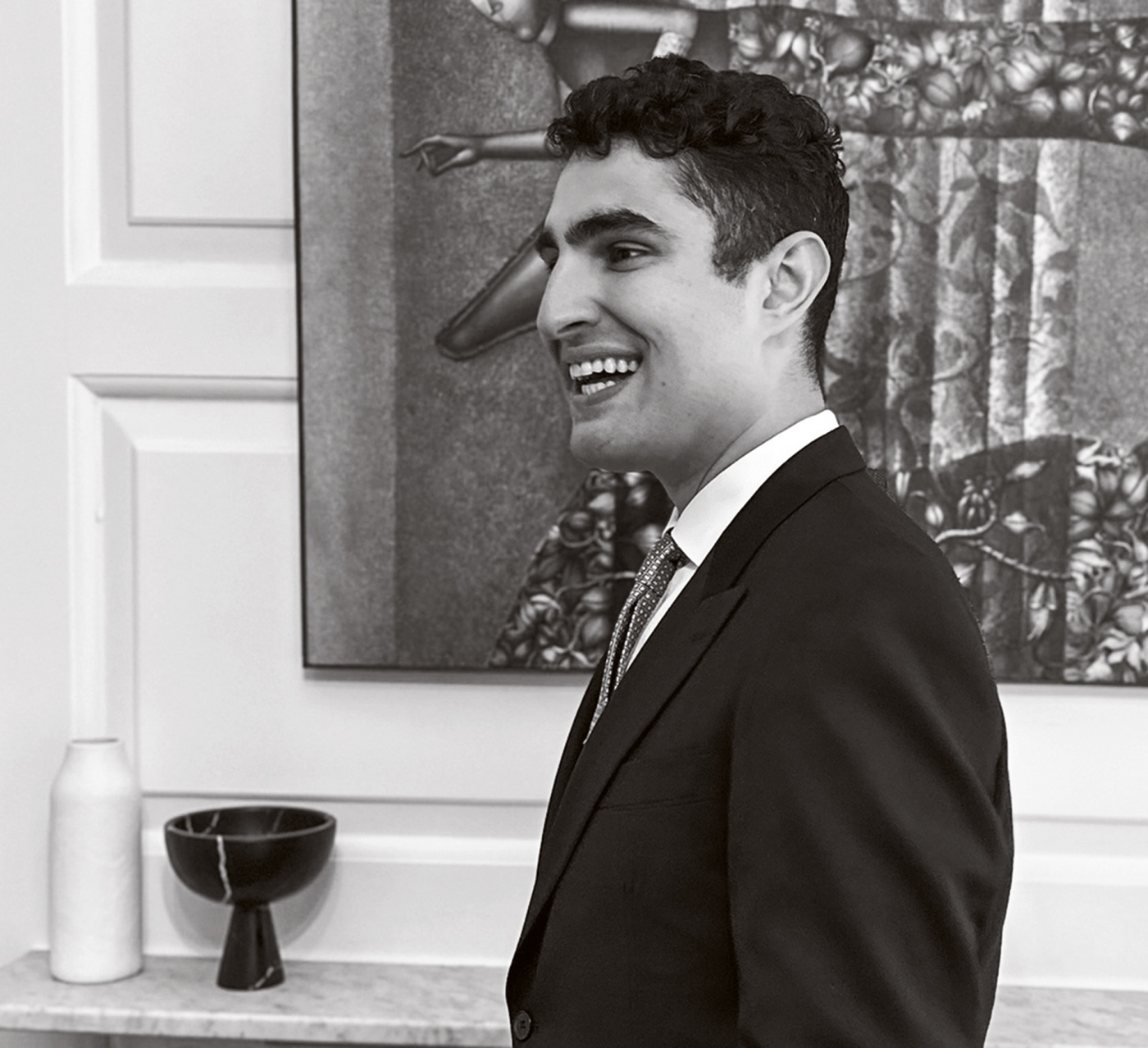The Talking Dead
AI brings historical icons back to life.
If you had the chance to ask the Roman emperor Marcus Aurelius—whose equestrian statue has long lived behind Brown’s Sayles Hall—what aspect of his long-ago career he was most proud of, he might answer, in an Italian accent: “My contributions to the stability and prosperity of the Roman Empire during my reign. My commitment to duty, virtue, and decency is something I hold dear.” Hm, okay. What about how he maintains his richly curled head of hair? “I’m afraid I don’t have much to say on that topic. My hair was a matter of personal grooming, not something I considered deeply.”

At least that’s how he answered when Ben Shields ’22 MPA, the cofounder of the “edutainment” interface Know Me (know-me.ai), fed the handsome Mr. Aurelius those questions via a Zoom chat with this writer. Know Me’s AI historical figures—who can “talk” to you as though you were on FaceTime with them—are programmed to speak only of what they know (or, we should say, what trusted Internet sources know about them), ensuring their replies are historically accurate. “If the historical record is unclear,” says Shields, “we’ll find a way for them to defer the question, such as “I’m not sure about that, but let’s talk about this.”
Shields says Know Me is currently in talks with museums and learning centers everywhere from the U.K.—where Shields lives—to the UAE about their historical avatars, which also include Cleopatra and George Washington.
Shields grew up between the U.S., Israel, and the U.K. and studied public affairs at Brown because “I’ve always been really interested in politics and history, especially because of growing up in three countries.” A stint doing PR for Formula One racing opened him up to how much the sport’s sponsors, such as Amazon, were moving into the AI space. So he decided to as well, fusing his love of history with tech. “We all know that AI is going to be one of the defining products of the next ten years. Someday, every kid in school is going to be talking to Plato and Aristotle, because we all retain knowledge better from conversations.”





